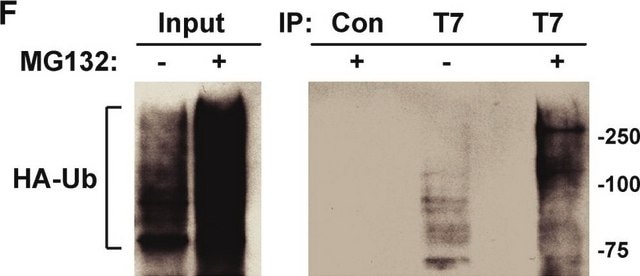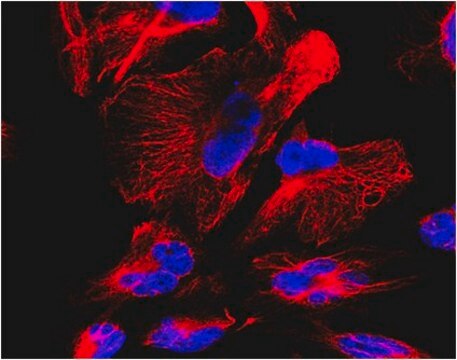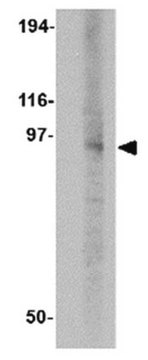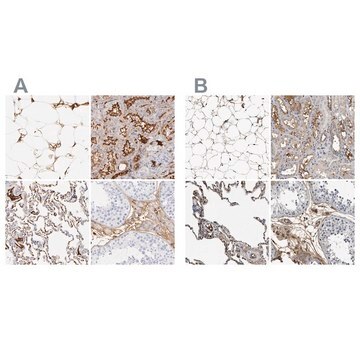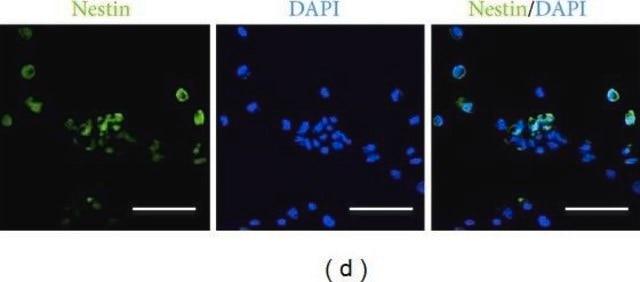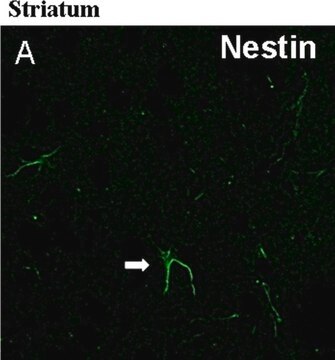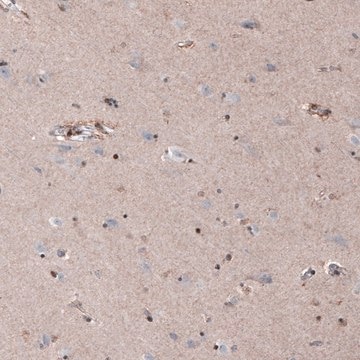ABN308
Anti-DISC1 Antibody
from rabbit, purified by affinity chromatography
Synonym(s):
Disrupted in schizophrenia 1
About This Item
Recommended Products
biological source
rabbit
Quality Level
antibody form
affinity isolated antibody
antibody product type
primary antibodies
clone
polyclonal
purified by
affinity chromatography
species reactivity
rat, mouse, human
technique(s)
immunocytochemistry: suitable
immunohistochemistry: suitable
western blot: suitable
UniProt accession no.
shipped in
wet ice
target post-translational modification
unmodified
Gene Information
human ... DISC1(27185)
General description
Immunogen
Application
Immunocytochemistry Analysis: A 1:2,000 dilution from a representative lot detected DISC1 in HeLa cells.
Western Blot Analysis: 2 µg/mL from a representative lot detected DISC1 in 10 µg/mL of SK-N-SH cell lysate and mouse brain tissue lysate.
Neuroscience
Developmental Neuroscience
Quality
Immunohistochemistry Analysis: A 1:2,000 dilution of this antibody lot detected DISC1 in human brain tissue.
Target description
Physical form
Storage and Stability
Analysis Note
Human brain tissue
Other Notes
Disclaimer
Not finding the right product?
Try our Product Selector Tool.
wgk_germany
WGK 2
flash_point_f
Not applicable
flash_point_c
Not applicable
Certificates of Analysis (COA)
Search for Certificates of Analysis (COA) by entering the products Lot/Batch Number. Lot and Batch Numbers can be found on a product’s label following the words ‘Lot’ or ‘Batch’.
Already Own This Product?
Find documentation for the products that you have recently purchased in the Document Library.
Our team of scientists has experience in all areas of research including Life Science, Material Science, Chemical Synthesis, Chromatography, Analytical and many others.
Contact Technical Service
